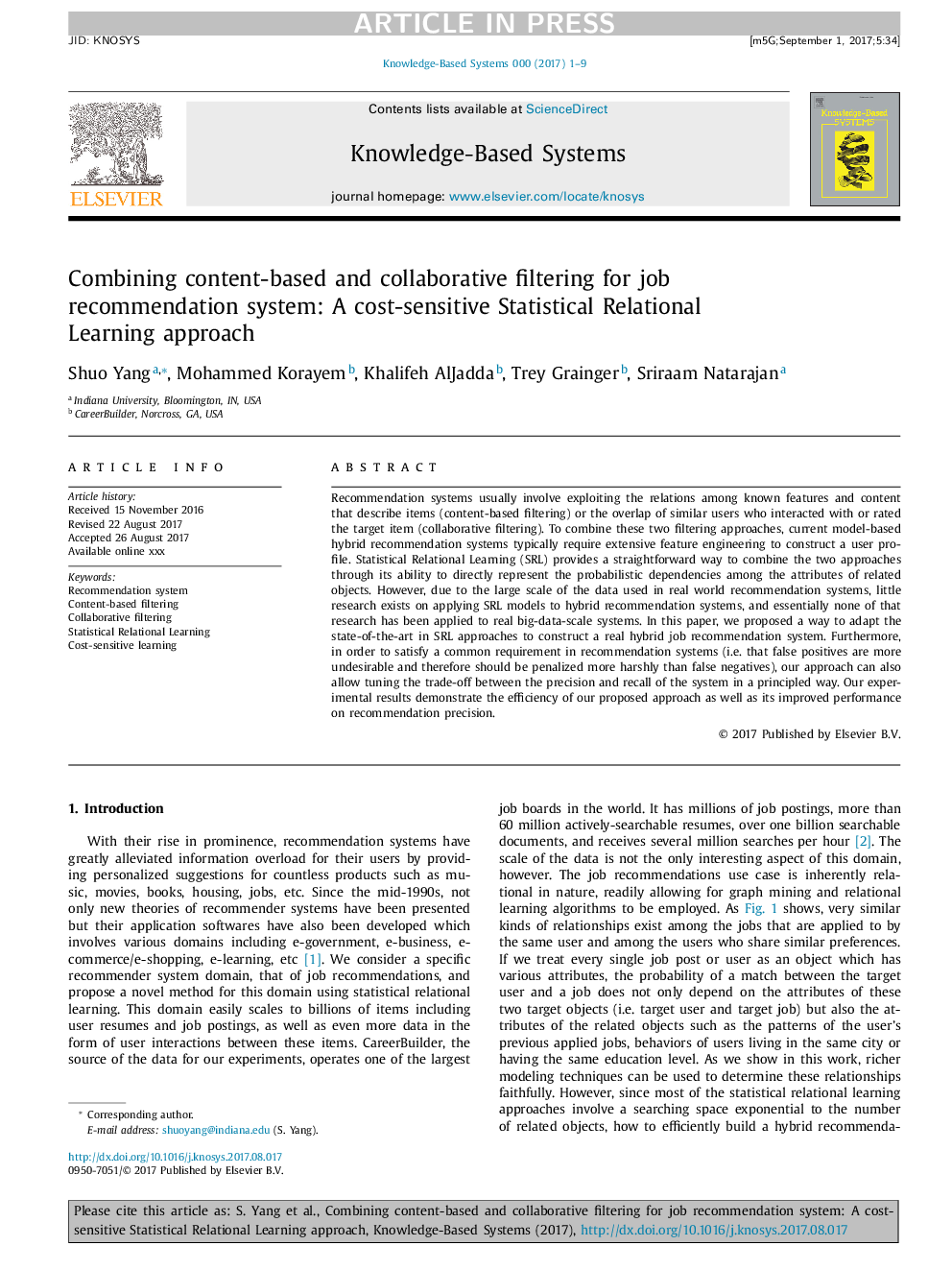| Article ID | Journal | Published Year | Pages | File Type |
|---|---|---|---|---|
| 4946029 | Knowledge-Based Systems | 2017 | 9 Pages |
Abstract
Recommendation systems usually involve exploiting the relations among known features and content that describe items (content-based filtering) or the overlap of similar users who interacted with or rated the target item (collaborative filtering). To combine these two filtering approaches, current model-based hybrid recommendation systems typically require extensive feature engineering to construct a user profile. Statistical Relational Learning (SRL) provides a straightforward way to combine the two approaches through its ability to directly represent the probabilistic dependencies among the attributes of related objects. However, due to the large scale of the data used in real world recommendation systems, little research exists on applying SRL models to hybrid recommendation systems, and essentially none of that research has been applied to real big-data-scale systems. In this paper, we proposed a way to adapt the state-of-the-art in SRL approaches to construct a real hybrid job recommendation system. Furthermore, in order to satisfy a common requirement in recommendation systems (i.e. that false positives are more undesirable and therefore should be penalized more harshly than false negatives), our approach can also allow tuning the trade-off between the precision and recall of the system in a principled way. Our experimental results demonstrate the efficiency of our proposed approach as well as its improved performance on recommendation precision.
Keywords
Related Topics
Physical Sciences and Engineering
Computer Science
Artificial Intelligence
Authors
Shuo Yang, Mohammed Korayem, Khalifeh AlJadda, Trey Grainger, Sriraam Natarajan,
